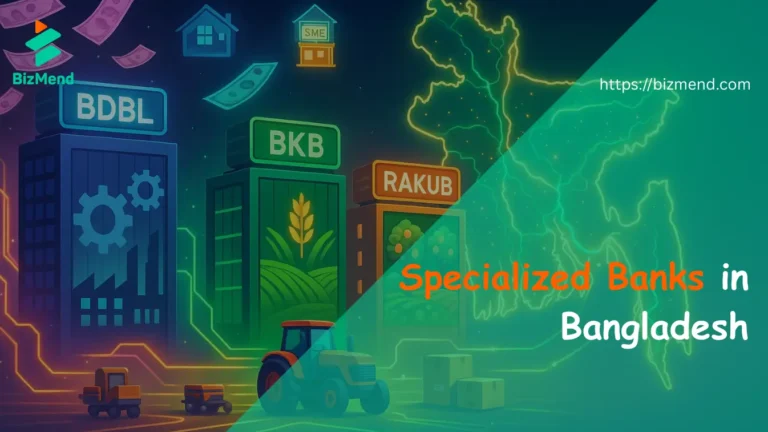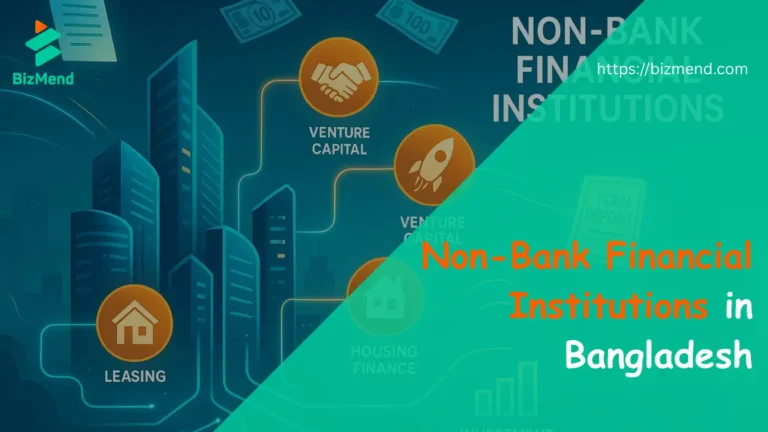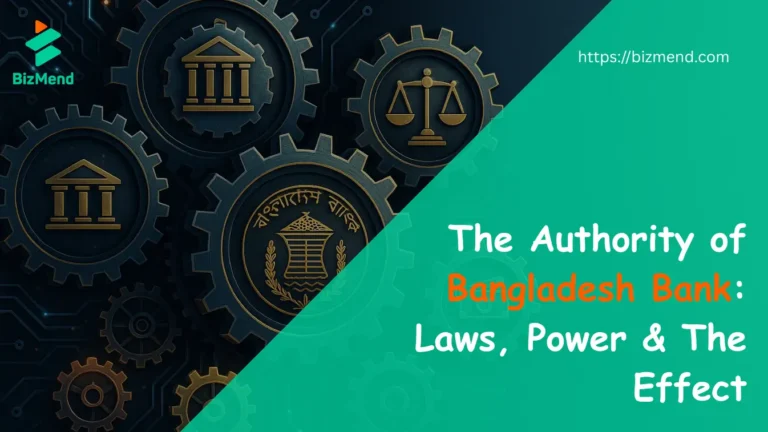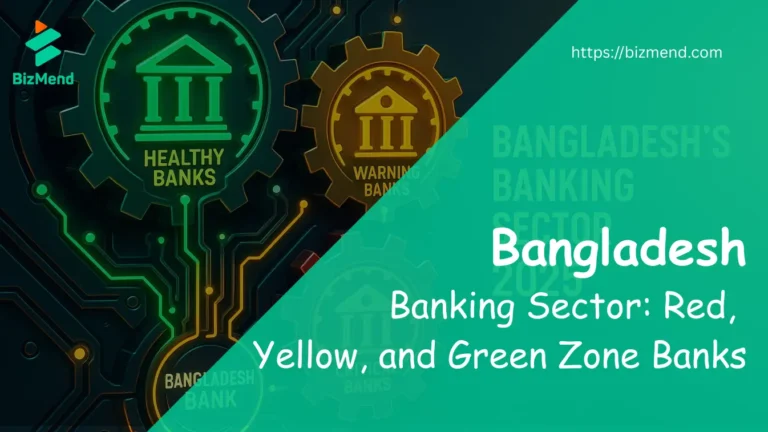“Bangladesh isn’t just a market. It’s a movement. Join it!”
Not Just Another List. This Is Where the Money’s Moving.
You’ve seen Bangladesh pop up on investor radars.
It’s not a fluke.
Cheap labor isn’t the only story anymore.
This country is pushing digital, shipping millions in exports, building green energy plants, developing its ports, scaling up food processing—and yes, it’s still sewing the world’s clothes faster than anyone else.
But the question for you isn’t “Is Bangladesh investable?”
It’s: Which door is open and which one is wide?
This isn’t a list pulled from a government brochure.
It’s a snapshot of where foreign entrepreneurs are actually landing, scaling, and hiring, with eyes wide open and numbers that back it up.
Let’s talk about the 11 industries where foreign investment in Bangladesh isn’t just possible—it’s happening.
Key Advantages of Investing in Bangladesh
First, let’s talk about the advantages; what will you get investing in Bangladesh?
Strategic Location
Bangladesh sits right where it matters—between South and Southeast Asia—giving businesses easy reach into booming markets like India, China, and the ASEAN region. Even better? It’s close to major sea routes, which means smoother trade, faster shipping, and better global connections.
Competitive Labor Costs
Labor costs in Bangladesh are among the lowest in Asia—and that’s a big win for businesses. Whether you’re in garments, manufacturing, or any hands-on industry, you can scale efficiently without burning through your budget. It’s smart economics that gives you room to grow.
Favorable Government Policies
The Bangladeshi government has rolled out a range of investor-friendly policies, from tax breaks to duty-free raw material imports for select industries. Plus, special economic zones (SEZs) are being set up to attract more foreign investment.
Improving Infrastructure
From new highways and port upgrades to growing energy projects, infrastructure in Bangladesh is steadily getting better—making it easier for businesses to move goods, operate efficiently, and scale faster.
- Ready-Made Garments (RMG) and Textiles
Why it matters:
Bangladesh is the second-largest garment exporter in the world. The sector is mature but, you can say, still growing with a new focus on sustainability and smart manufacturing.
Where to invest:
- Green factories
- Vertical integration
- Digital supply chain
Pro tip:
If you haven’t mapped your structure yet, revisit company types and restrictions for foreigners in Bangladesh to see how foreign ownership plays out in export-based sectors.
- Information & Communication Technology (ICT)
Why it matters:
From BPO to mobile apps, Bangladesh’s tech talent is finally catching global attention—and the Digital Bangladesh agenda is pushing it harder.
Where to invest:
- Software services
- Fintech
- SaaS and IT education platforms
Pro tip:
Registering a tech firm? Start with how to register a Private Limited Company in BD as a foreigner, so you don’t fumble the incorporation basics.
- Pharmaceuticals and Medical Devices
Why it matters:
Bangladesh has made a name for itself with affordable generics and strong R&D in pharma. It’s exporting to 150+ countries already.
Where to invest:
- Contract manufacturing
- Biotech partnerships
- R&D labs and healthcare logistics
Pro tip:
Check taxation essentials for foreign entrepreneurs early. Customs benefits and export incentives exist, but only if you are structured right.
- Renewable Energy
Why it matters:
The government has made it clear: power shortage is no longer an option. Solar, wind, and biogas are getting policy attention and fiscal support.
Where to invest:
- Solar mini-grids
- Biomass solutions
- Green energy tech imports
Pro tip:
You’ll need BIDA (Bangladesh Investment Development Authority) approval and import permissions, so get your documents in line early.
- Agro-Tech and Food Processing
Why it matters:
With over 40% of the population still tied to agriculture, this is a ripe space for modernization, value addition, and export.
Where to invest:
- Cold storage and supply chain digitization
- Processing hubs near production belts
- Food packaging
- Processed snacks, dairy, frozen fish
Pro tip:
These sectors also offer startup or SME loan support, but check if foreigners are eligible under the current lending terms.
- Infrastructure & Construction
Why it matters:
Flyovers, highways, bridges, ports—Bangladesh is building, fast. The government wants partners, not just donors.
Where to invest:
- Smart city planning
- Industrial park development
- Urban logistics
- PPP-led transport infrastructure
Pro tip:
To participate, you’ll need a deep understanding of how to start a business in Bangladesh and handle post-registration compliance. You’ll also need solid licensing and land clarity. Read through the top legal requirements for foreign entrepreneurs first.
- Tourism, Hospitality & Experience Economy
Why it matters:
From Cox’s Bazar to the Sundarbans, domestic travel is rising, and the international wave is coming. But infrastructure is still raw. That’s your gap.
Where to invest:
- Boutique resorts
- Wellness & eco-tourism
- Travel tech platforms
Pro tip:
Office setup and property leases can be tricky. Review how to lease or buy office space in Bangladesh as a foreigner before you make the first move.
- Light Engineering and Electronics
Why it matters:
Bangladesh is shifting from import-reliance to making its own—automotive, electrical, and light manufacturing components.
Where to invest:
- EV parts
- Smart meters and IoT
- Local assembly
Pro tip:
Strong banking relationships matter here. Check How to Open a Business Bank Account in BD as a Foreigner.
- Leather and Leather Goods
Why it matters:
With an established raw material supply and global heritage, the leather sector is moving toward design and sustainability upgrades.
Where to invest:
- Eco-friendly tanning
- Global-standard branding
- Export packaging
Pro tip:
BIDA and export permissions are required if you’re setting up for overseas markets.
- Shipbuilding and Marine Services
Why it matters:
It’s not just Chattogram. Small-to mid-sized shipyards are growing fast, and maritime service demand is increasing.
Where to invest:
- Vessel building and repair
- Maritime tech
- Waterway logistics
Pro Tip:
Government incentives exist, but they’re buried under paperwork. Know all the compliances for foreign entrepreneurs in BD.
- Plastics and Packaging
Why it matters:
E-commerce, food processing, and industrial exports all need advanced, sustainable packaging.
Where to invest:
- Biodegradable plastics
- Export-grade packaging solutions
- Industrial packaging automation
Pro Tip:
Sustainability is now a sales tool. Build that into your offering from day one.
Don’t Just Watch the Growth. Position Yourself in It.
Foreign direct investment is no longer a whisper in Bangladesh.
It’s showing up in factory expansions, tech accelerators, solar fields, boutique hotels, and export packaging plants.
And these 11 industries? They’re not forecasts. They’re current events.
But timing matters.
So does structure.
And if you’re not willing to study what’s real—business licensing, repatriation rules, sector limits—then you’ll miss the door even while it’s open.
So pick your sector.
Map your entry.
Ask the uncomfortable questions before someone else asks them for you.
Bangladesh doesn’t hand you growth.
It gives you a window.
And right now, it’s open. So, jump in!
FAQ
Which industry in BD is currently the strongest for foreign investment?
The garment sector still leads in exports and employment. But in terms of growth potential, tech (ICT), renewable energy, and agro-processing are rapidly catching up. If you want scale, look at garments. If you want speed and innovation, look at ICT.
Is it easier to enter older industries like garments, or newer ones like renewable energy?
Garments have a playbook—but it’s crowded. You’ll need efficiency, networks, and export muscle. Renewable energy, on the other hand, is less saturated but more regulated. Entry isn’t harder, it’s just more policy-driven. Depends on what you’re built for.
What sectors offer the highest return for mid-size foreign investors?
Light engineering, agro-processing, packaging, and tourism. These sectors still have room to grow and aren’t completely dominated by large players. You don’t need $100 million to make a dent—you need timing and local alignment.
Are there sectors foreign investors should be cautious about?
Yes. Anything linked to land ownership, telecom infrastructure, or cultural products (like media or advertising) may come with hidden restrictions. Always double-check regulatory limits—especially in agriculture and real estate.
Which sectors have the most government support right now?
ICT, infrastructure, renewable energy, pharmaceuticals, and export-based manufacturing. These industries often qualify for tax breaks, easier import rules, or fast-track permissions. But government support means paperwork—so know what exactly you are signing up for.
Can I invest in multiple industries at once?
You can—but structure carefully. Don’t blur unrelated business activities under one company. If you’re entering ICT and food processing, for example, consider setting up separate business units or even different entities. It helps with compliance and tax reporting.
Which industry is still underrated but highly promising?
Tourism and eco-experiences. While everyone talks about factories and tech, Bangladesh’s natural beauty is under-monetized. Foreign investment here—if done with sensitivity and structure—has massive upside.












